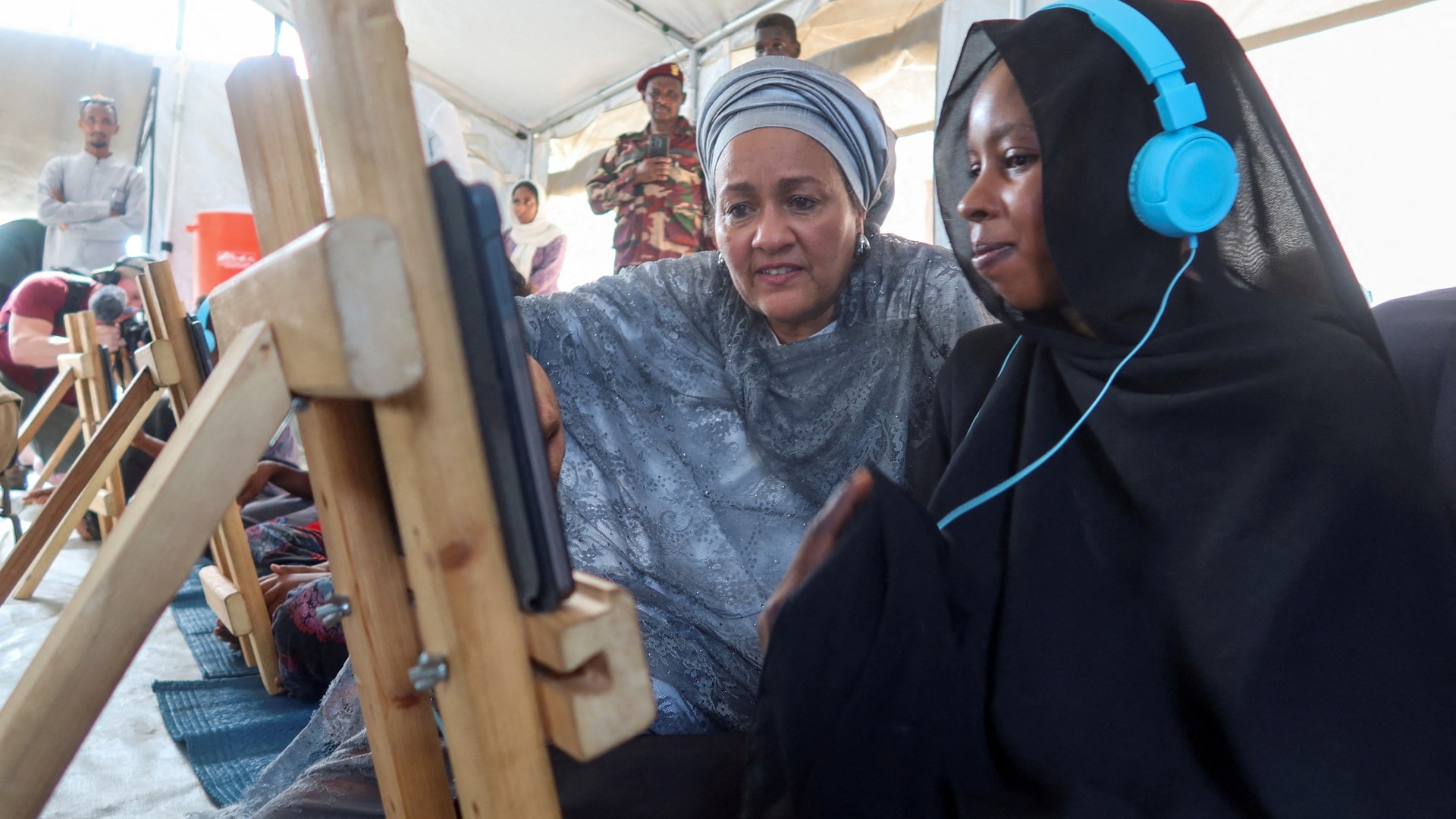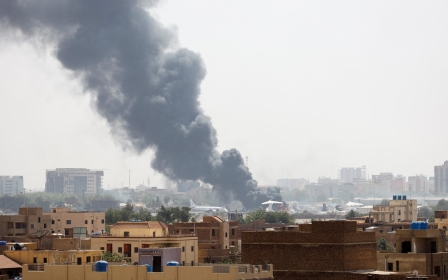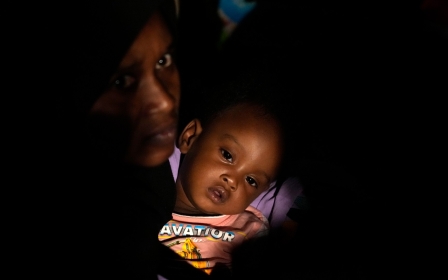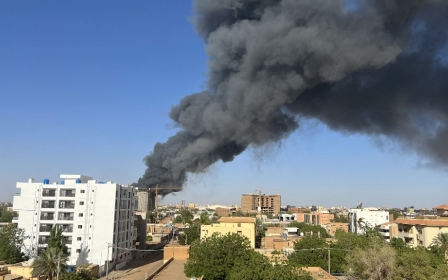Sudan crisis: Women and girls must be at the heart of global response

In South Sudan, there is a camp called Bentiu, where 100,000 people flocked years ago to escape war. They have now been joined by many more, especially women and girls, who have fled the appalling conflict in Sudan.
I heard their harrowing stories of families torn apart; of suffering, devastation and horrendous violence targeting women and girls. For now, they are safe - but many others are not.
New MEE newsletter: Jerusalem Dispatch
Sign up to get the latest insights and analysis on Israel-Palestine, alongside Turkey Unpacked and other MEE newsletters
This week, I am in New York, representing the UK at the world’s largest meeting of leaders, ministers and diplomats: the UN General Assembly.
The conflict in Sudan will be among the most urgent issues I will raise, along with other global crises, from Gaza to Ukraine. But as both minister for development and minister for women and equalities, I will focus not just on the UK’s role in resolving political tensions, but also on the women and girls who are bearing the brunt of conflict.
Conflict is catastrophic for development, and its impacts are gendered. It is estimated that 20 to 30 percent of women in conflict settings experience sexual violence - an issue not just in Sudan, but almost everywhere fighting breaks out.
Conflict drives home the very worst of gender inequality, which even in times of peace, prevents women from reaching their full potential. War intensifies preexisting problems, intersecting to wreck the lives of women and girls.
On every front, the case for taking action to support women and girls is clear. I’ve said that women and girls will be at the heart of everything I do in this government, and this week at the UN General Assembly is testament to that.
Critical platform
Impressive female leaders, from UN Deputy Secretary General Amina Mohammed to Barbadian Prime Minister Mia Mottley, are shaping the debate in New York, whether on reinvigorating progress towards the UN’s Sustainable Development Goals, or on unlocking more climate finance.
Integrating gender equality across the breadth of foreign and development policy makes both more effective. It is also the morally right thing to do
As I step into UN headquarters and meet partners, allies, non-governmental organisations and business leaders, I will be asking how our agreements, policies and plans can do more for women and girls.
With all 193 member states coming together, the General Assembly sets the tone for cooperation on key global issues. It’s a critical platform to stand up for the most pressing issues of the day - and this must include the situation of women and girls.
I am proud of the role the UK played in establishing the Women, Peace and Security agenda through the landmark UN Security Council Resolution 1325, which recognised the disproportionate impacts of armed conflict on women and girls.
But nearly a quarter of a century later, it is up to all of us to ensure we make strides towards implementing it and the nine resolutions that followed.
Integrating gender equality across the full breadth of foreign and development policy makes both more effective. It is also the morally right thing to do.
From the prime minister down, this government is clear: the UK has a moral obligation to advance a world free from poverty on a liveable planet. At the UN General Assembly this week, I will be leading the charge to deploy the UK’s outstanding diplomatic and development expertise to drive this mission forward.
The views expressed in this article belong to the author and do not necessarily reflect the editorial policy of Middle East Eye.
Middle East Eye delivers independent and unrivalled coverage and analysis of the Middle East, North Africa and beyond. To learn more about republishing this content and the associated fees, please fill out this form. More about MEE can be found here.





